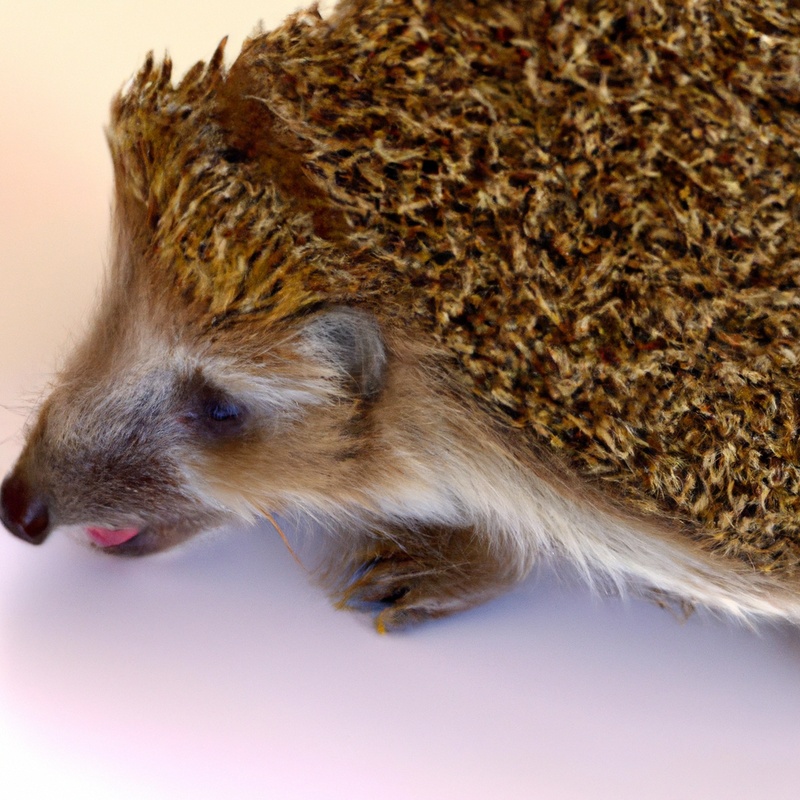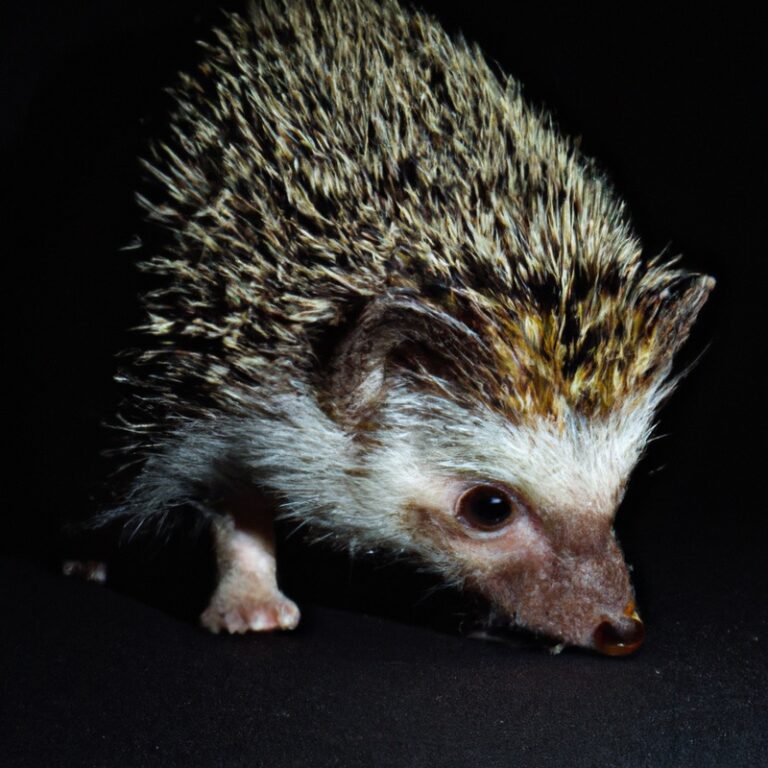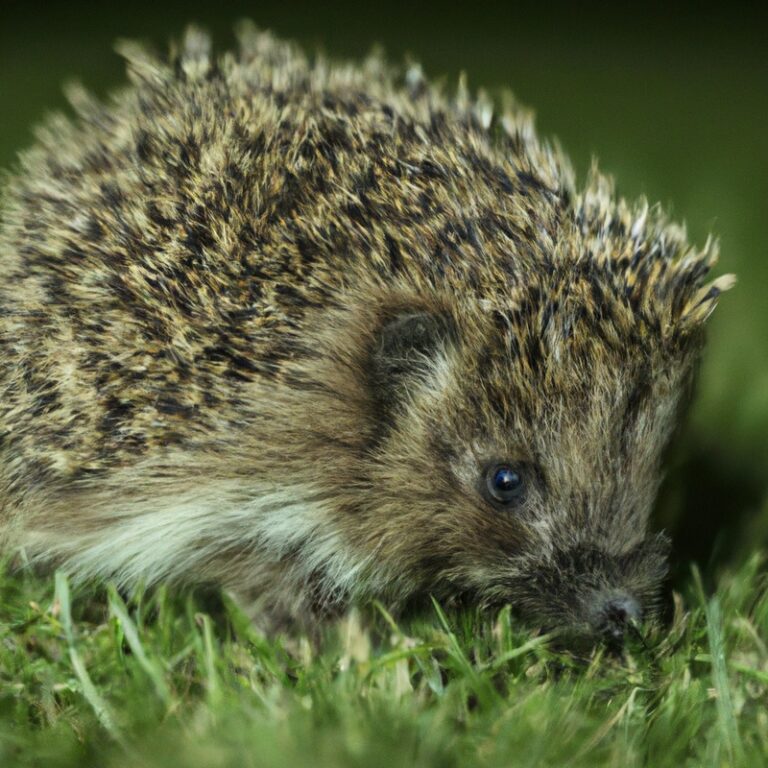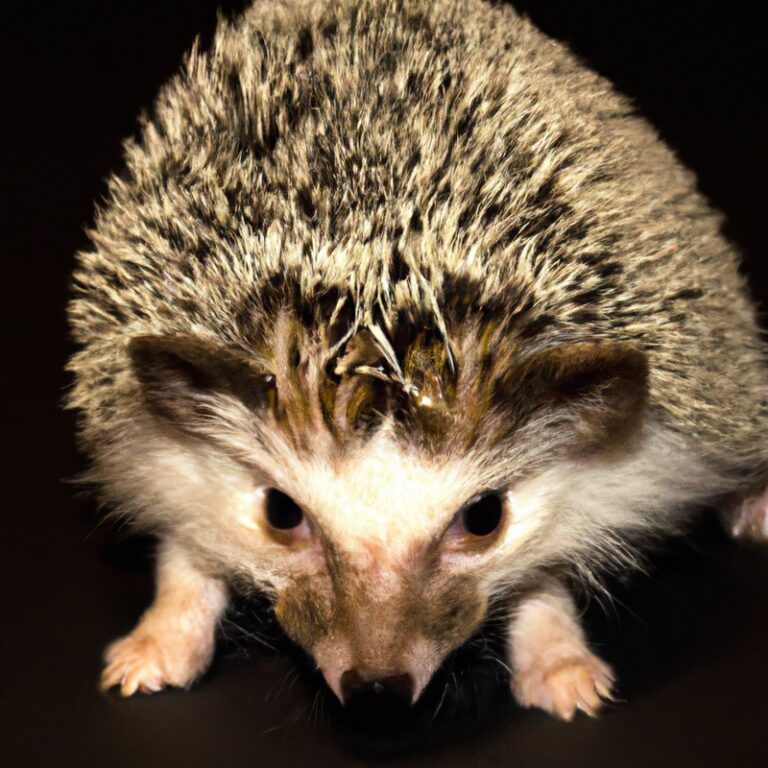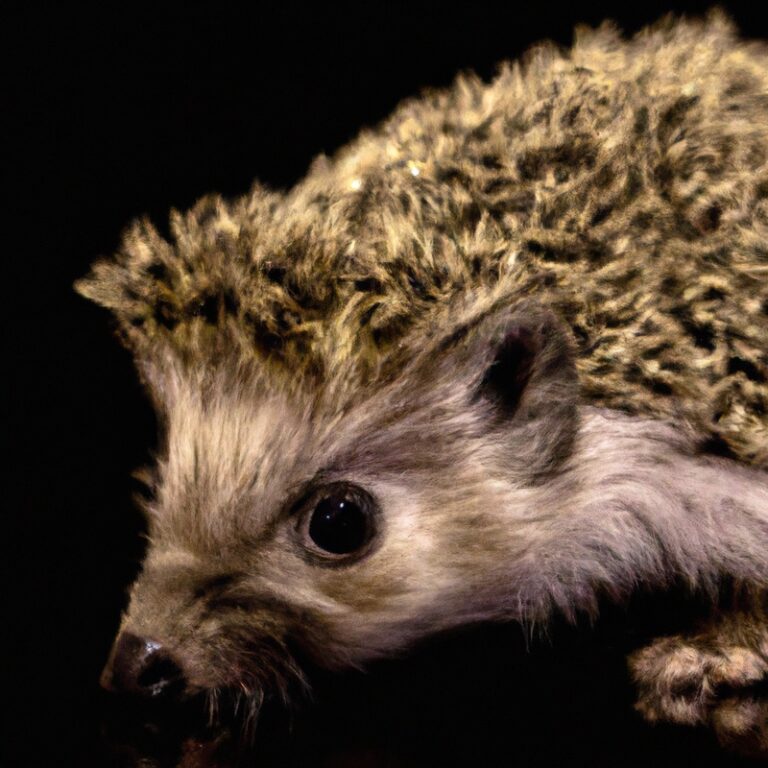How To Provide Proper Nutrition For Pet Hedgehogs?
Key Takeaways:
- Hedgehogs require a balanced diet consisting of high-quality, protein-rich foods to maintain their health.
- It is important to provide a variety of insects, fruits, vegetables, and commercial hedgehog food to meet their nutritional needs.
- Avoid feeding hedgehogs foods that are toxic or high in fat, such as chocolate, grapes, and salty snacks.
- Regularly monitor your hedgehog’s weight, ensure access to fresh water, and consult a veterinarian for dietary recommendations.
Are you ready to unlock the secrets to providing proper nutrition for your beloved pet hedgehog? Just like humans, hedgehogs have unique dietary needs that require attention and care.
In this blog article, we’ll delve into the world of hedgehog nutrition and explore the key requirements for a balanced diet.
From high-quality pellets to protein-rich insects and nutritious fruits and vegetables, we’ll cover it all. Plus, we’ll share feeding guidelines, hydration tips, and even discuss supplements and treats.
So, let’s embark on this nutritional journey together and ensure your hedgehog’s health and happiness!
| Aspect | Recommendation |
| 1. Diet | A well-balanced diet of commercial hedgehog food, supplemented with insects, fruits, and vegetables |
| 2. Protein | Protein should make up about 25% of their diet, which can be provided through insects like mealworms, crickets, and waxworms |
| 3. Fruits and Vegetables | Offer a variety of fruits and vegetables, such as apples, bananas, peas, carrots, and kale as occasional treats |
| 4. Water | Provide fresh, clean water in a shallow dish or a water bottle with a sipper tube |
| 5. Feeding Schedule | Feed hedgehogs during their active hours in the evening or at night |
| 6. Avoid | Avoid feeding them dairy products, sugary foods, and processed human foods |
Understanding the Nutritional Needs of Pet Hedgehogs
Pet hedgehogs have specific nutritional requirements that you should understand to ensure they stay healthy.
Key Nutritional Requirements for Pet Hedgehogs
Pet hedgehogs have specific nutritional requirements to keep them healthy.
Here are the key points you need to remember:
- High-quality hedgehog food: Feed your hedgehog a specially formulated hedgehog food that provides a balanced diet and includes essential nutrients they need.
- Protein-rich diet: Hedgehogs require a diet rich in protein. Include high-quality sources like insects, lean meats, and cat food that contain around 30-35% protein.
- Limited fat and carbohydrates: Hedgehogs have low fat and carbohydrate requirements. Avoid feeding them fatty or sugary foods, as these can lead to obesity and health issues.
- Fresh water: Always provide fresh, clean water for your hedgehog. Make sure to check it regularly and change it as needed.
- Supplements: Consider adding calcium and vitamin supplements to their diet, as these nutrients are crucial for their bone health.
Remember, providing a balanced and nutritious diet is essential for the well-being of your pet hedgehog.
Consulting with a veterinarian is highly recommended for personalized advice.
Common Nutritional Deficiencies in Pet Hedgehogs
Common Nutritional Deficiencies in Pet Hedgehogs:
- Lack of fiber: Hedgehogs need a diet high in fiber to maintain a healthy digestive system. Without enough fiber, they can develop constipation and other digestive issues.
- Inadequate protein: Hedgehogs require protein for growth and energy. A deficiency in protein can lead to stunted growth and a weakened immune system.
- Insufficient calcium and vitamin D: These nutrients are essential for hedgehogs’ bone health. Without enough calcium and vitamin D, hedgehogs may develop bone deformities and suffer from weak bones.
- Limited hydration: Hedgehogs have a low thirst drive and may not drink enough water on their own. This can result in dehydration, urinary tract problems, and overall poor health.
- Lack of variety in diet: A monotonous diet can lead to nutrient imbalances. It is important to offer a variety of foods to ensure hedgehogs receive all the essential nutrients they need.
Remember, it is vital to provide a balanced and diverse diet to meet your pet hedgehog’s nutritional needs and minimize the risk of these common deficiencies.
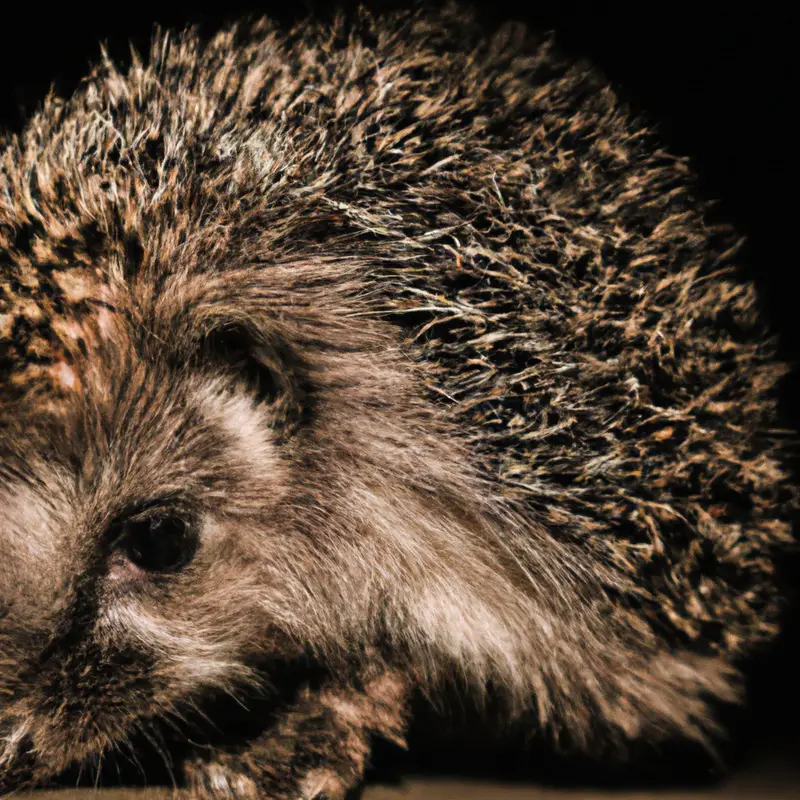
Essential Foods for a Balanced Hedgehog Diet
To provide a balanced hedgehog diet, include high-quality hedgehog pellets, protein-rich insects, and nutritious fruits and vegetables.
High-Quality Hedgehog Pellets
High-quality hedgehog pellets are an essential part of a balanced hedgehog diet. These pellets contain a mix of nutrients that are specifically formulated for the dietary needs of hedgehogs.
Look for pellets that have a high protein content, as hedgehogs require a protein-rich diet.
Additionally, choose pellets that are made with natural ingredients and do not contain any artificial additives or fillers. Feeding your hedgehog high-quality pellets ensures they are getting the necessary nutrients for optimal health and wellbeing.
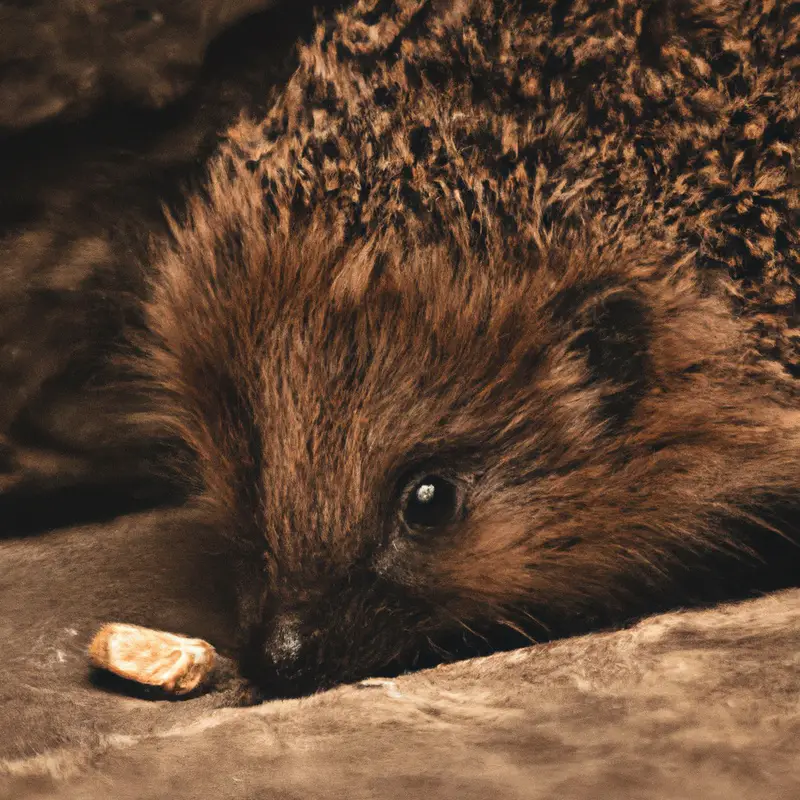
Protein-Rich Insects for Hedgehogs
Protein-rich insects are an important part of a hedgehog’s diet.
They provide essential nutrients and help maintain a healthy weight.
Some good options include mealworms, crickets, and waxworms.
However, it’s important to offer them in moderation and ensure they are properly sourced and gut-loaded for optimal nutrition.
If you’re unsure, consult with a veterinarian to ensure you’re providing the right balance of insects and other foods for your hedgehog’s well-being.
Nutritious Fruits and Vegetables for Hedgehogs
Hedgehogs can benefit from incorporating a variety of fruits and vegetables into their diet.
Some nutritious options include apples, bananas, strawberries, blueberries, and watermelon.
It’s important to wash and cut these fruits into small, bite-sized pieces to make it easier for your hedgehog to eat.
In terms of vegetables, options like carrots, bell peppers, peas, and spinach can provide essential vitamins and minerals.
Remember to introduce new foods gradually to prevent any digestive upset.
Always consult with a veterinarian for specific dietary recommendations for your pet hedgehog.
Feeding Guidelines for Pet Hedgehogs
To ensure proper nutrition for your pet hedgehog, follow these feeding guidelines.
Determining the Right Portion Sizes for Hedgehogs
Determining the right portion sizes for hedgehogs is important for their overall health.
To ensure they are getting the proper amount of food, you should consider their weight and activity level.
A general guideline is to offer about 1-2 tablespoons of dry food per day, along with a small amount of fresh fruits or vegetables.
However, it’s always best to consult with a veterinarian who specializes in exotic pets for specific recommendations tailored to your hedgehog’s needs.
Regularly monitor their weight and adjust portion sizes accordingly.
Remember, every hedgehog is unique, so it’s important to tailor their diet to their individual requirements.
Establishing a Feeding Schedule for Hedgehogs
Establishing a feeding schedule for hedgehogs is important to ensure their nutritional needs are met. Here are some guidelines to help you create a schedule for your pet hedgehog:
- Offer a balanced diet: Hedgehogs require a combination of high-quality dry cat food, live insects, and fresh fruits and vegetables for optimal nutrition.
- Feed at night: Hedgehogs are nocturnal animals, so it’s best to offer their main meal in the evening or at night when they are most active.
- Provide fresh water daily: Make sure to replenish their water bowl with fresh, clean water every day to keep them hydrated.
- Monitor their weight: Regularly check your hedgehog’s weight to ensure they’re not gaining or losing too much. Adjust their feeding schedule accordingly.
- Be consistent: Stick to a consistent feeding schedule to help establish a routine for your hedgehog. This will also prevent overfeeding or underfeeding.
Remember, every hedgehog is unique, so it’s essential to monitor their health and adjust their feeding schedule accordingly.
Tips for Introducing New Foods to Hedgehogs
When introducing new foods to your hedgehog, start by offering small amounts to see if they like it. Gradually increase the portion over time.
Make sure to introduce a variety of foods to maintain a balanced diet.
Avoid feeding them toxic foods like chocolate or onions. Offer fresh fruits, vegetables, insects, and high-quality commercial hedgehog food.
It’s important to monitor their reactions and consult a veterinarian if you notice any adverse effects.
Remember to always provide clean, fresh water. Happy feeding!
Hydration: Importance of Water for Hedgehogs
Water is essential for the health and well-being of pet hedgehogs.
Providing Fresh Water for Hedgehogs
To provide fresh water for hedgehogs, you should place a shallow dish of water in their enclosure. Make sure to change the water daily to prevent bacteria growth.
Avoid providing milk or any other liquids, as hedgehogs are lactose intolerant.
It’s important to monitor their water intake, especially during hot weather, as dehydration can be dangerous for them. Keep an eye on the water dish and refill it as needed to ensure your hedgehog stays hydrated.
Tips to Encourage Hedgehogs to Drink Water
One way to encourage hedgehogs to drink water is by providing them with a shallow and sturdy water dish. Make sure it is easily accessible and cleaned regularly.
You can also try adding a few drops of unsweetened fruit juice to the water to give it a more appealing taste.
Another tip is to place the water dish in a quiet and safe location, away from any potential disturbances. Finally, consider offering water-rich foods such as cucumber or watermelon to supplement their hydration.
Supplements and Treats for Hedgehogs
Supplements and treats can provide added nutrition and enjoyment for your pet hedgehog.
Understanding the Role of Supplements for Hedgehogs
Supplements can play a helpful role in the nutrition of pet hedgehogs. They provide additional nutrients, like vitamins and minerals, that may be lacking in their regular diet.
However, it’s important to remember that supplements should not replace a balanced and nutritious main diet.
You should consult with a veterinarian to determine if your hedgehog requires supplements and to ensure you provide the appropriate ones in the correct dosage. Improper use of supplements can be harmful to your pet’s health, so always follow professional advice.
Safe and Healthy Treat Options for Hedgehogs
When it comes to providing treats for your hedgehog, it’s important to choose options that are safe and healthy. Here are some options to consider:
- Mealworms: These are a popular treat for hedgehogs and are high in protein. However, they should be given in moderation to avoid overfeeding.
- Small pieces of fruits and vegetables: Hedgehogs can enjoy small portions of fruits like berries, melons, and apples, as well as vegetables like carrots and peas. Just make sure to remove any seeds or pits.
- Cooked meat: Plain, cooked chicken or turkey can be given as a treat. Avoid seasoning or adding any oils or spices.
Remember to always monitor your hedgehog while they are eating treats and ensure they have access to fresh water.
Avoiding Harmful Foods and Treats for Hedgehogs
To ensure the health and well-being of your pet hedgehog, it is important to avoid feeding them harmful foods and treats.
Here are some foods that should be avoided:
- Fruits high in citric acid, such as oranges and lemons, can cause digestive issues in hedgehogs.
- Grapes and raisins can be toxic and lead to kidney damage.
- Dairy products like milk, cheese, and yogurt can cause gastrointestinal problems due to hedgehogs’ lactose intolerance.
- Foods high in fat, such as nuts and seeds, can lead to obesity and other health issues.
- Sugary treats like chocolate and candy should be completely avoided as they are toxic to hedgehogs.
Stick to a balanced diet of high-quality hedgehog food and occasional treats specifically formulated for them.
Always consult with a veterinarian for specific dietary recommendations for your pet hedgehog.
Best Practices for Feeding Pet Hedgehogs
To provide proper nutrition for pet hedgehogs, there are some best practices you should follow.
Creating a Safe and Comfortable Feeding Area for Hedgehogs
To create a safe and comfortable feeding area for your pet hedgehog, consider these tips:
- Choose a quiet location: Find a calm and quiet spot in your home for the feeding area. Hedgehogs prefer peace and quiet while they eat.
- Use a shallow dish: Provide a shallow dish or bowl specifically made for hedgehogs. This allows them to easily access their food without any discomfort.
- Keep it clean: Regularly clean the feeding area to maintain hygiene. Remove any uneaten food and wash the dish with mild soap and water.
- Provide fresh water: Hedgehogs need access to fresh water at all times. Use a water bottle with a sipper tube or a shallow dish that they can drink from easily.
- Avoid plastic or harmful materials: Choose feeding dishes made of ceramic or glass to avoid any potential harm to your hedgehog. Plastic can be easily chewed and ingested, which can be dangerous for them.
Maintaining Cleanliness in Hedgehog Food and Water Bowls
To maintain cleanliness in your hedgehog’s food and water bowls, it is important to establish a regular cleaning routine. Start by removing any leftover food or debris from the bowls on a daily basis.
Then, wash the bowls with warm, soapy water and rinse thoroughly before refilling them.
It’s also a good idea to disinfect the bowls at least once a week using a pet-safe disinfectant. By keeping your hedgehog’s food and water bowls clean, you can ensure their health and well-being.
Monitoring and Adjusting the Diet as Hedgehogs Age
As hedgehogs age, it’s important to monitor and adjust their diet to ensure their health and well-being. One key consideration is their activity level and metabolism, which may change over time.
You should regularly assess their body condition and weight to determine if any adjustments are needed.
Consult with a veterinarian knowledgeable in hedgehog care for specific guidance. Gradual changes to their diet should be made, taking into account their nutritional needs and any age-related health concerns.
This will help to maintain their overall health and longevity.
Frequently Asked Questions about Hedgehog Nutrition
How often should I feed my pet hedgehog?
When it comes to feeding your pet hedgehog, it’s important to establish a consistent feeding schedule.
As a general guideline, you should offer your hedgehog fresh food and water every day.
Hedgehogs are natural grazers, so it’s best to provide a continuous supply of dry cat food.
Additionally, you can offer them small portions of fresh fruits, vegetables, insects, or mealworms a few times a week as a treat.
Remember to remove any uneaten food to maintain cleanliness in their enclosure.
Can hedgehogs eat cat or dog food?
Hedgehogs should not eat cat or dog food. While these foods may seem convenient, they do not provide the specific nutritional needs that hedgehogs require.
Hedgehogs are insectivores and need a diet rich in protein, fiber, and low in fat.
Instead, opt for specially formulated hedgehog food or provide a balanced mixture of high-quality insects, fruits, and vegetables. It’s important to prioritize their health and well-being by giving them the right food.
Are there any foods that hedgehogs should avoid?
Some foods should be avoided when feeding hedgehogs. These include dairy products, chocolate, caffeine, and sugary foods.
These can upset their delicate digestive system and may cause health issues.
Additionally, avoid feeding them foods with high salt or fat content. Stick to a balanced diet of high-quality hedgehog food, supplemented with insects, fruits, and vegetables.
It’s important to provide a nutritious and appropriate diet to keep your pet hedgehog healthy and happy.
Final Verdict
Providing proper nutrition for pet hedgehogs is essential for their overall health and well-being.
Understanding their unique dietary needs, such as high-quality hedgehog pellets, protein-rich insects, and nutritious fruits and vegetables, is crucial.
Establishing a feeding schedule, determining appropriate portion sizes, and introducing new foods gradually are important guidelines to follow.
Offering fresh water, utilizing supplements and safe treats, and creating a safe feeding environment are also key practices.
By following these recommendations, pet owners can ensure their hedgehogs receive the necessary nutrients for a happy and healthy life.

